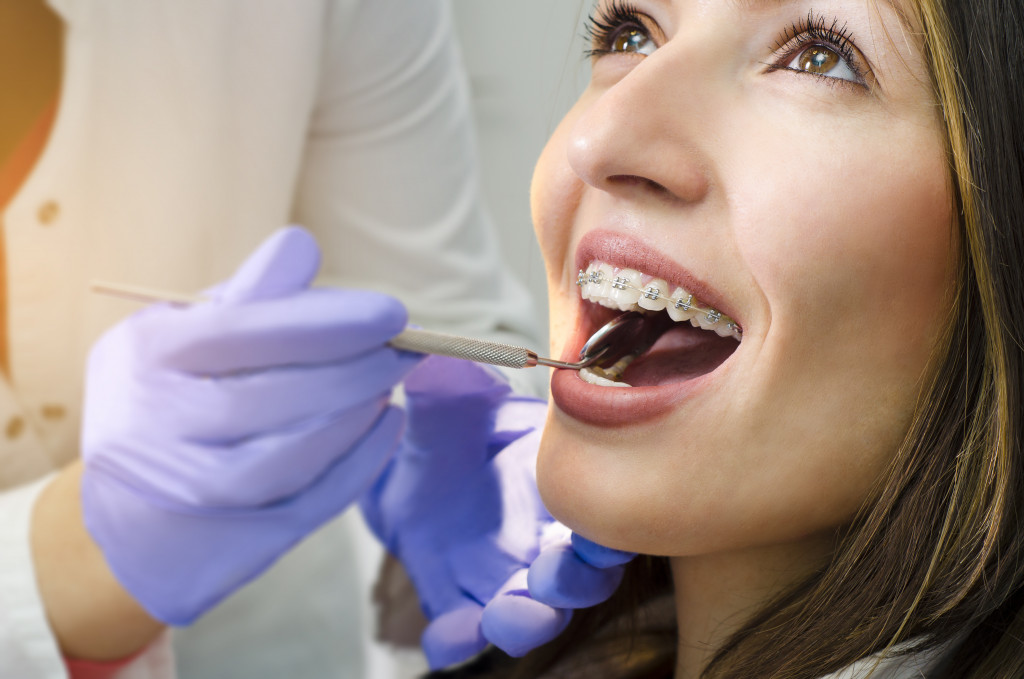Dental injuries are a common occurrence and can result from a fall, car accident, or impact on the face. The teeth may sustain damage ranging from cracked or chipped teeth to teeth that have been knocked out. This blog will explore the different types of dental injuries and what to do if you experience one. Let’s get started!
Types of Dental Injuries
Here are some of the most common types of dental injuries:
Knocked-Out Tooth
This is one of the most severe dental injuries. A knocked-out tooth is a tooth that has been completely dislodged from the socket. You’ll know if you have a knocked-out tooth if you see it lying on the ground or in your hand.
The main thing to do if you have a knocked-out tooth is to try and find the tooth. Once you have the tooth, hold it by the crown (the white part) and avoid touching the root. If possible, try to insert the tooth back into its socket gently. If that’s not possible, put the tooth in a cup of milk or water.
It’s essential to see a dentist right away if you have a knocked-out tooth. The sooner you can get to the dentist, the better the chances are that your tooth can be saved.

Chipped or Broken Tooth
You may have a chipped or broken tooth if you experience pain when biting down or if you see a crack in your tooth. A chipped tooth is a small break in the tooth, while a broken tooth is a more severe break that may go all the way through the tooth.
If you have a chipped tooth, rinse your mouth with warm water and apply a cold compress to the area. Rinse your mouth with luke warm water and apply a cold compress to the area for a broken tooth. It’s also essential to see a dentist right away as you may need treatment to avoid infection or further damage to the tooth.
Cracked Tooth
While a cracked tooth is similar to a chipped tooth, it’s more severe as it extends below the gum line. A cracked tooth can result in pain when biting down or chewing and sensitivity to hot and cold temperatures. If you think you have a cracked tooth, it’s important to see a dentist right away for treatment.
Symptoms of cracked teeth can often be mistaken for other dental problems, so it’s important to get a professional opinion to ensure you’re getting the proper treatment.
Treatment for Dental Injuries
If you have a dental injury, it’s important to act fast and seek treatment as soon as possible. Depending on the severity of your injury, you may need to see a dentist, an endodontist, or an oral surgeon.
Dental injuries can vary in severity, from a cracked tooth to a completely knocked out (avulsed) tooth. Here’s a look at the different types of treatment that may be required for dental injuries:
Dental Implant
If a tooth in your mouth has been totally knocked out, you may need a dental implant. Implants are titanium posts that are placed in the bone socket where the tooth is missing. Once the implant has healed, an artificial tooth (crown) is attached to the implant. You’ll be able to eat and speak normally with dental implants.
Endodontic Treatment
While dental implants are an option for missing teeth, endodontic treatment may be able to save a tooth that has been severely damaged. Endodontic treatment (also known as root canal therapy) entails cleaning out the tooth’s damaged internal tissue, filling it, and sealing it. This type of treatment can often save a tooth that would otherwise need to be extracted.
Oral Surgery
In some cases, oral surgery may be required to treat a dental injury. This type of surgery is often needed to remove damaged tissue or to place dental implants. Oral surgery can also be used to repair damage to the jawbone or nerves. You should talk to your dentist about all of your treatment options before deciding on a course of action.
No matter what type of dental injury you have, it’s important to seek treatment as soon as possible. The sooner you can get to the dentist, the better the chances are that your tooth can be saved. Dental injuries can be painful and can cause permanent damage if they’re not treated properly. So, if you think you may have a dental injury, don’t wait to see a dentist. Also, be sure to brush and floss regularly and see your dentist for regular checkups to help prevent dental injuries.